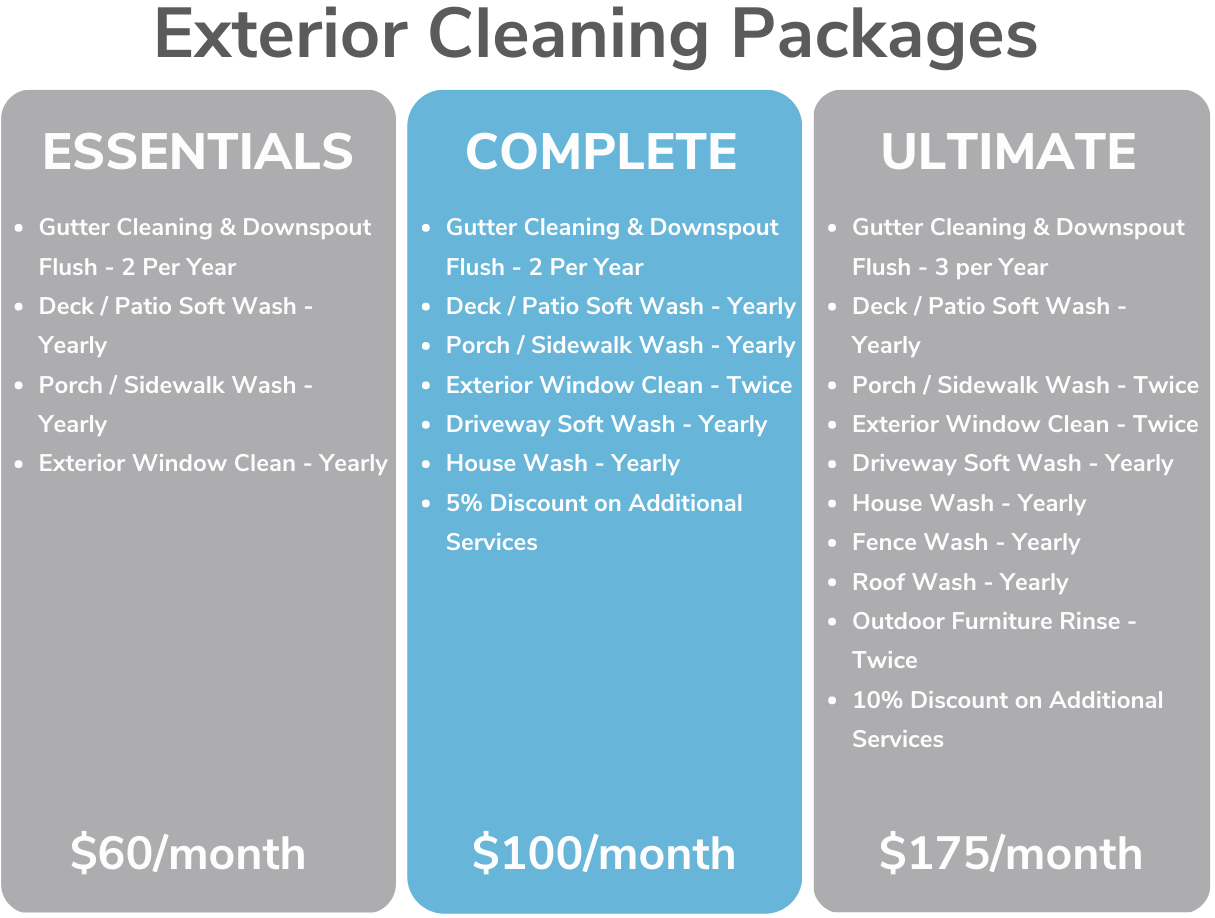
Choose A Maintenance Plan
Protect your property from more costly damage with proper maintenance.
Our exclusive exterior cleaning packages are professionally delivered by our trusted garage floor coating contractors in NJ. These maintenance cleanings are designed to free you from the hassle of worrying about pressure washing, gutter cleaning, or window washing for your home ever again. With regular scheduled maintenance cleanings, your property will maintain its pristine appearance year after year. As a valued member, you’ll enjoy the convenience of pre-scheduled services throughout the year, ensuring priority scheduling and no missed services. Moreover, our cleaning packages can be tailored to your specific needs with optional add-on services, all conveniently billed in easy monthly payments. Experience worry-free and impeccable property maintenance with our comprehensive exterior cleaning packages.

Starting prices based on a 1600 sq ft home, with 20 windows, 150 sq ft deck and 150 sq ft porch. The estimator will measure and estimate your particular house and give you a precise quote for your homes’s needs.
Additional Services:
Sample Yearly Schedule
1. Gutter Cleaning With Downspout Flush
May, August, and November
2. House Wash (Annual)
May
3. Driveway and Sidewalk Wash (Annual)
May
4. Exterior Window Cleaning
May, November
5. Deck or Patio Wash (Annual)
May
6. Porch Wash ( Twice Annually)
May, November
7. Fence Wash ( Annual )
May
8. Roof Wash ( Annual)
November
9. Outdoor Furniture Rinsing( Twice Annually)
May, August
Select A Maintenance Plan
Let Pro Seal LLC’s estimator evaluate and measure your property, offering a personalized maintenance plan that suits your requirements. Rely on our expertise for exterior care. Contact us now!
FAQs
Can I customize the Maintenance Plans to suit my specific needs?
Yes, you can customize the cleaning packages to suit your specific needs. Pro Seal LLC offers additional add-on services, allowing you to tailor the package according to your requirements.
How does estimators at Pro Seal LLC make precise quotes for homes’ specific needs?
Depending on the type of service required, estimators at Pro Seal LLC measure and estimate the cost through derailed measurements of the property, material and labor assessment and accounting for contingencies. Pro Seal LLC estimators rely on previous experience in similar projects and industry standards to provide precise quotes.
How do I change or customize my cleaning package or purchase add-on services after signing up?
If you want to change or adjust your cleaning package or purchase add-on services after signing up, you can reach out to Pro Seal LLC. We will guide you through the process and make necessary adjustments to meet your preferences.


